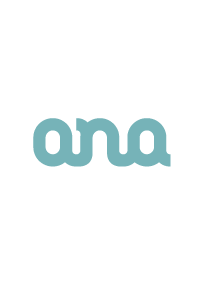Water tablets, likewise known as diuretics, are commonly made use of medications that aid enhance the keramin krema regularity of peeing in order to get rid of excess fluid from the body. They are frequently suggested to treat conditions such as high blood pressure, edema, and particular kidney or liver conditions. In this post, we will certainly explore the various kinds of water tablets, exactly how they work, their advantages, prospective adverse effects, and essential factors to consider when using them.
Understanding the Various Sorts Of Water Pills
There are 3 main types of water pills generally recommended by healthcare professionals:
- Thiazide Diuretics
- Loop Diuretics
- Potassium-Sparing Diuretics
Thiazide Diuretics: This sort of water tablet functions by lowering the amount of water reabsorbed by the kidneys. By doing so, it boosts pee production and aids the body get rid of excess salt and water. Thiazide diuretics are commonly prescribed depanten to treat hypertension and edema caused by problems such as heart failure or kidney disease.
Loophole Diuretics: Loophole diuretics are powerful drugs that work by hindering the reabsorption of salt and chloride in the loophole of Henle, a part of the kidney. Due to their powerful nature, loophole diuretics are usually recommended for a lot more extreme cases of edema or fluid retention, typically connected with problems like congestive heart failure or liver illness.
Potassium-Sparing Diuretics: Unlike thiazide and loop diuretics, potassium-sparing diuretics help the body eliminate excess water while protecting potassium. These diuretics are frequently made use of in combination with other diuretics to stop potassium depletion, a potential adverse effects of diuretic treatment.
Exactly How Do Water Tablets Work?
Water tablets work by modifying the method the kidneys filter and eliminate liquids. By increasing the volume of urine created, they help reduce the total liquid volume in the body. This can bring about reduced blood pressure and reduced liquid retention, supplying alleviation to those struggling with conditions such as edema or hypertension.
Thiazide diuretics primarily hinder the reabsorption of salt in the kidneys, which assists get rid of excess liquid from the body. Loop diuretics, on the other hand, work by targeting the loophole of Henle in the kidneys, stopping the reabsorption of both salt and chloride. Potassium-sparing diuretics influence the exchange of salt and potassium in the kidneys, leading to increased water loss without significant potassium depletion.
The Benefits of Water Tablets
Water tablets provide a number of advantages for individuals experiencing conditions that include liquid retention or high blood pressure:
- Minimized edema: Water tablets are effective in lowering edema, which is the accumulation of excess liquid in the body’s cells. This can supply alleviation for people with conditions such as cardiac arrest, liver illness, or kidney disorders.
- Decreased high blood pressure: By boosting pee manufacturing, water tablets can assist reduced blood pressure levels, making them a typically suggested treatment for hypertension.
- Therapy for sure clinical problems: Water tablets are often suggested to manage problems like kidney stones, glaucoma, and specific hormone imbalances.
- Enhanced signs and symptoms of bloating: Water retention can bring about uneasy bloating. Water tablets can help alleviate this sign by getting rid of excess fluid from the body.
Prospective Negative Effects and Factors To Consider
While water tablets can be highly efficient in dealing with specific conditions, they are not without prospective adverse effects and factors to consider:
- Potassium discrepancy: Thiazide and loophole diuretics can cause potassium deficiency, which can cause muscle mass weak point, irregular heart beat, and other complications. It is very important for individuals taking these drugs to have their potassium levels kept an eye on frequently by their doctor.
- Dehydration: Extreme fluid loss can bring about dehydration, which can trigger signs and symptoms such as dizziness, exhaustion, and dry mouth. It is important to remain appropriately moistened and comply with the dosage guidelines supplied by the medical care professional.
- Electrolyte inequalities: Water tablets can disrupt the equilibrium of electrolytes in the body, consisting of salt, potassium, and magnesium. Keeping track of these levels and making necessary modifications to the treatment strategy is essential.
- Medication interactions: It is important to educate your healthcare provider regarding all the medicines you are presently taking, as particular medicine communications might happen when using water tablets.
Finally
Water pills, also called diuretics, are medications that raise pee manufacturing to get rid of excess liquid from the body. They are frequently prescribed to treat conditions such as hypertension and edema. Understanding the various sorts of water tablets, exactly how they work, their benefits, potential negative effects, and important considerations is vital when utilizing them as part of a treatment plan. Always talk to a medical care expert for correct diagnosis, assistance, and tracking when using water pills.

